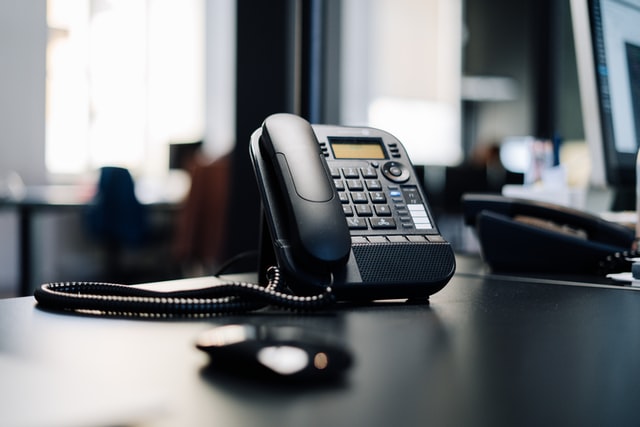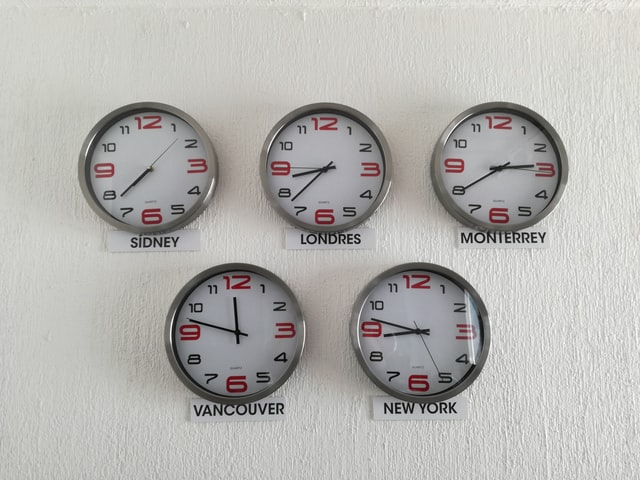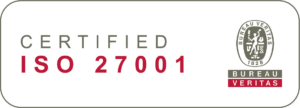Is scheduling interviews easy? Some people may say that it only takes minutes to send an email or pick up the phone to invite candidates or find their interview availability. But what if you have to handle hundreds of candidates, multiple communication channels, and dozens of open vacancies?
According to a Candidate Experience Assessment Report by Criteria, “54% of a pool of 2,059 interviewed candidates have abandoned a recruitment process, citing poor communication from the recruiter/employer.”
Here is Rakuna’s list of top mistakes to avoid when you set up interviews so you can ensure productive and flawless interviews with a pleasant candidate experience.
#1 – Making Random Calls to Gain Interview Availability

Ever been caught off guard by a recruiter’s unexpected call to schedule an interview? Candidates feel the same shock—and not in a good way. Random calls may seem quick, but they often leave applicants scrambling, risking scheduling conflicts and forgotten details.
In fact, research from Cronofy (2024) found that 43% of candidates dropped out of the process due to delays and confusion around scheduling
Here’s how to transform your approach:
✅ Utilize Scheduling Tools: Implement platforms that let candidates view available time slots and choose one that fits their schedule. This eliminates the need for immediate phone calls and reduces back-and-forth communication.
✅ Provide Ample Notice: Whether through email, SMS, or a brief call, giving candidates advance notice allows them to plan their day without rushing.
✅ Offer Flexible Options: Present multiple time slots to accommodate diverse schedules, minimizing the chance of conflicts or the need to reschedule.
✅ Send Confirmation Emails: Follow up with a detailed confirmation email to clearly outline the interview specifics and ensure both parties are on the same page.
✅ Encourage Candidate Feedback: Ask for input on your scheduling process. Honest feedback helps pinpoint improvement areas, enhancing the overall candidate experience.
#2 – Lacking Well-Structured Calls
When interviews are rushed into a quick phone call without any plan, crucial details easily slip through the cracks. In fact, a paper prepared by the Dept of Psych EDI committee at McGill University indicates that structured interviews can improve hiring accuracy by up to 30% compared to unstructured interviews.
Here’s a quick cheat sheet for a smooth call:
-
Introduction: Start by greeting the candidate and checking if it’s a good time to chat. No one likes being ambushed during a busy day.
-
Purpose: Clearly explain why you’re calling—whether it’s to gather a bit more info or to set up the interview. Keep it brief and on-point.
-
Availability: Ask about their schedule and suggest a suitable time slot. A little flexibility goes a long way.
-
Next Steps: Wrap up by outlining the follow-up process. Immediately after the call, send a confirmation text or email summarizing all the details. It’s the digital equivalent of dotting your i’s and crossing your t’s.
Forbes’ Human Resources Council (2023) emphasizes that structured interview processes can reduce candidate anxiety, helping organizations secure top talent by showcasing their organized and respectful approach
By taking a few extra moments to prepare and structure your call, your recruiting team can see higher success in bringing in qualified talent with enhanced the overall candidate experience.
#3 – Sending Inadequate Information
We’ve all been there—opening an email that barely scratches the surface of the details you need for your interview.
When recruiters send emails that skim over key details, like the interview format, location, names of interviewers, or any prep materials – confusion ensues.
This lack of clarity forces endless back-and-forth emails that waste time and sour the candidate experience. Instead, consider using a comprehensive email template (think Rakuna’s Comprehensive Interview Scheduling Email Template, but feel free to customize!) that includes all essential information.
This way, candidates can review the details at their own pace and come prepared, while you save yourself from unnecessary follow-ups and potential delays.
#4 – Scheduling Fixed Interview Time Beforehand
Imagine getting an email that tells you, “Your interview is fixed at 2:00 PM on Tuesday,” without even a quick check on your calendar. Not cool, right?
A 2023 Glassdoor survey revealed that 87% of candidates consider scheduling flexibility as a top factor in their overall candidate experience. Pre-arranging fixed time slots without first confirming a candidate’s availability can lead to scheduling conflicts—especially for those juggling current job commitments or high-level responsibilities.
The solution? Offer multiple time options based on your interviewers’ availability. By leveraging scheduling software that integrates with digital calendars, you can empower candidates to pick a slot that suits their schedule.
This simple change not only minimizes rescheduling headaches but also ensures that the process is both efficient and respectful of everyone’s time.
#5 – Being Unaware of Time Zone Differences

In our increasingly interconnected world, remote work and global hiring have become standard practices. This shift necessitates a keen awareness of time zone differences when scheduling interviews. Overlooking these differences can lead to missed appointments, confusion, and a negative candidate experience.
Best Practices for Navigating Time Zones in Interview Scheduling
✅ Leverage Time Zone-Conscious Scheduling Tools: Utilize scheduling software that automatically adjusts for time zone differences. Platforms like Rakuna, or Greenhouse allow recruiters to set flexible interview hours through time-zone conversion, simplifying the coordination of interviews across different time zones.
✅ Enable Candidate Self-Scheduling: Empower candidates by allowing them to select interview slots that align with their local time zones. Tools like Rakuna’s Interview Scheduling Software offer candidate self-scheduling features, providing flexibility and reducing the likelihood of time zone misunderstandings. Similarly, Pinpoint provides self-scheduling links that adjust to the candidate’s time zone, enhancing the scheduling experience.
✅ Clearly Communicate Time Zones: Always specify the time zone when proposing interview times. For instance, stating “Our interview is scheduled for 2 PM PST / 5 PM EST” can prevent confusion. This practice ensures that both parties are aligned on the timing, regardless of their locations.
✅ Maintain Flexibility and Cultural Sensitivity: Recognize that candidates may have varying availability due to regional holidays or cultural practices. Being flexible and accommodating in scheduling not only demonstrates respect but also enhances the candidate’s perception of your organization.
#6 – Sending Incorrect Logistics Information and Failing to Update All Stakeholders
In the intricate process of interview coordination, accuracy in logistical details is paramount. Errors such as providing incorrect venue addresses, misstating interview times, or neglecting to inform stakeholders of schedule changes can lead to confusion, frustration, and a tarnished employer reputation.
A survey by HiBob – a HR software provider revealed that over half (57%) of 2000 surveyed employees identified poor communication during recruitment as a significant red flag, potentially deterring them from accepting a job offer.
Strategies to Ensure Accurate Logistics and Timely Updates
✅ Centralize Information: Utilize platforms that consolidate all interview details in a single, accessible location. This approach minimizes discrepancies and ensures that both candidates and internal teams have access to the most current information.
✅ Implement Automated Notification Systems: Employ scheduling software equipped with automated notifications to promptly alert all parties of any changes. This ensures real-time updates and reduces the risk of miscommunication.
✅ Double-Check Details Before Sending: Prior to dispatching interview information, verify the accuracy of all logistical elements, including dates, times, and locations. This simple step can prevent potential misunderstandings.
✅ Maintain Open Communication Channels: Encourage candidates to confirm receipt of interview details and to reach out with any clarifications. This proactive approach fosters transparency and trust.
✅ Provide Clear and Detailed Instructions: When scheduling interviews, offer comprehensive information such as directions to the venue, parking instructions, or guidelines for virtual meeting platforms. This clarity enhances the candidate experience and reduces anxiety.
Your Logistics Management Checklist for Seamless Interviews
✅ Interview Space Readiness
- Right Room, Right Size: A 1-on-1 interview in a conference room is fine, but a panel interview crammed into a tiny space? Not ideal. Ensure rooms are booked appropriately for the type of interview.
- Tech Setup: If the interview requires a presentation, verify that the room has a functioning projector or screen ahead of time.
✅ Technology Checks & Backup Plans
- Pre-Check Video Interviews: Nothing derails an interview faster than connection issues. If conducting remote interviews, test video conferencing tools (Zoom, Teams, etc.) ahead of time.
- Device Compatibility: Confirm that hiring managers have the necessary software and access for virtual interviews. Provide a backup dial-in option just in case.
- Emergency Plan: Have a contingency plan for tech failures, like a secondary meeting link or a phone interview alternative.
✅ Scheduling & Communication
Interviewer Availability: Avoid last-minute chaos by double-checking interviewer schedules before finalizing interview slots.
Candidate Confirmation: Every candidate should receive a clear confirmation email with:
-
Date & time (with time zone clarity for virtual interviews)
-
Location details (or video meeting link)
-
Preparation instructions (e.g., portfolio, assessment, presentation requirements)
✅ Security & Compliance Considerations
- Access Protocols: If interviews take place in a secure facility, communicate ID or clearance requirements to candidates beforehand.
- Privacy Compliance: Ensure interview data, candidate documents, and recordings (if applicable) comply with GDPR, EEOC, and other data privacy laws.
#7 – Sinking Too Many Resources into Unqualified Candidates
Investing significant time and resources in candidates who ultimately prove unqualified can be a substantial drain on organizational efficiency. This misallocation not only delays the hiring of suitable talent but also incurs unnecessary costs. A study by the Society for Human Resource Management (SHRM) indicates that the average cost-per-hire is approximately $4,129, underscoring the importance of optimizing recruitment processes.
Strategies to Optimize Resource Allocation in Recruitment
✅ Implement Pre-Screening Assessments: Utilize pre-employment assessments to evaluate candidates’ skills and competencies early in the hiring process. This approach ensures alignment with job requirements before proceeding to more resource-intensive interview stages. As noted by RecruitingDaily, standardizing evaluation criteria and involving multiple evaluators can mitigate unconscious bias and facilitate objective comparisons.
✅ Adopt AI-Powered Recruitment Tools: Leverage artificial intelligence to enhance candidate screening efficiency. AI-driven platforms can analyze vast amounts of data to identify candidates whose skills and experiences closely match job requirements, reducing the likelihood of engaging with unqualified applicants. The Guardian highlights that AI recruitment tools, such as Employment Hero’s SmartMatch, focus on candidates’ skills and capabilities, minimizing biases related to gender, age, and visual cues.
✅ Utilize Pre-Screening Questionnaires: Deploy targeted questionnaires to gather critical information upfront, allowing for the efficient identification of candidates who meet essential criteria. This method streamlines the selection process by filtering out unsuitable applicants early on.
✅ Conduct Brief Initial Interviews: Engage in concise phone or video interviews to assess candidates’ communication skills, enthusiasm, and basic qualifications. This step serves as an efficient filter before committing to more in-depth evaluations.
✅ Evaluate Cultural Fit: Assess candidates’ alignment with the organization’s culture and values to ensure long-term compatibility. Considering factors beyond technical skills, such as personality and communication style, contributes to building cohesive teams.
#8 – Overbooking Interviews

Jamming too many interviews into a single day might seem like an efficient way to speed up hiring, but it often backfires. Recruiters who rush through back-to-back interviews risk candidate fatigue, decision fatigue, and even information mix-ups—all of which can lead to poor hiring decisions.
A study by the Harvard Business Review found that interviewer fatigue significantly impacts decision-making, making recruiters more likely to reject candidates toward the end of a long interview streak. When the brain is overloaded, nuanced assessments give way to snap judgments, which can cause recruiters to overlook strong candidates simply because they were scheduled later in the day.
How to Optimize Your Interview Schedule for Better Hiring Outcomes:
✅ Prioritize Interview Quality Over Quantity
Instead of aiming to interview as many candidates as possible in a short period, focus on creating an environment where both the interviewer and the candidate can engage in a meaningful discussion. Recruiters who space out interviews gain more clarity and have the mental energy to ask deeper, more insightful questions.
✅ Use Smart Scheduling Tools
Leveraging scheduling software to enable recruiters to automatically space out interviews, block break times, and sync schedules with hiring teams to prevent burnout. This ensures that each candidate gets a well-prepared and engaged interviewer rather than someone racing through a long list of meetings.
✅ Implement Structured Interview Breaks
Studies show that short breaks between cognitive tasks help prevent mental fatigue and improve accuracy in decision-making. Implementing a 5–10 minute buffer between interviews gives recruiters time to reset, take notes, and mentally prepare for the next candidate.
✅ Avoid Late-Afternoon Interviews for Critical Roles
Research from the ACE Employment Services suggests that interviewer energy levels and attention decline as the day progresses. Whenever possible, schedule key interviews in the morning or early afternoon when energy and focus are at their peak.
✅ Create a Scalable Interview Process
If your hiring volume is high, consider implementing a multi-stage interview process where initial screenings are automated (e.g., through pre-recorded video interviews), allowing recruiters to focus only on the most promising candidates in later interview rounds.
#9 – Coming Off as Too Impersonal
Automation has revolutionized hiring, making scheduling and communication seamless. But when every email, reminder, and follow-up feels like a copy-paste template, candidates start to feel like they’re interacting with a machine rather than a potential employer.
A study by IBM found that candidates satisfied with their recruitment experience are 38% more likely to accept a job offer.
A lack of personalization can send the wrong message, making top talent feel undervalued before they even set foot in the company.
How to Maintain a Human Touch in an Automated Hiring Process
✅ Personalize Every Interaction—Even the Automated Ones: Automation doesn’t have to mean robotic. When using scheduling software or email templates, take advantage of customization features:
- Use the candidate’s name in subject lines and greetings.
- Acknowledge their background (e.g., “We were really impressed by your experience in [industry/role]!”).
- Tailor responses based on past interactions, making candidates feel like more than just another email recipient.
✅ Humanize Follow-Ups with Thoughtful Touchpoints: Even with automation, recruiters can inject warmth and engagement into the process:
- Pre-interview: Send a short personal note alongside the automated confirmation (e.g., “Looking forward to our chat! Feel free to reach out if you have any questions before then.”).
- Post-interview: Consider sending a quick thank-you video or voice note rather than just another templated email. Tools like Loom or Vidyard allow recruiters to record quick, personalized videos that stand out.
✅ Show Company Culture Early On: Candidates don’t just want a job; they want a workplace where they feel they belong. Make sure all communication reflects the company’s values and tone. A few ways to do this:
- Inject personality into emails—if your company has a friendly, informal culture, let that shine through in messages.
- Share insights about the team—a quick mention of who they’ll meet in the interview helps build familiarity.
- Provide behind-the-scenes glimpses—consider linking to employee testimonials or culture videos in pre-interview emails.
✅ Keep Two-Way Communication Open: One of the biggest mistakes in automated hiring is making it one-sided. Candidates should feel comfortable reaching out with questions rather than being trapped in an impersonal email loop. Make it clear that candidates can reply directly to emails and receive a human response.
#10 Overcomplicating the Scheduling Process
In an attempt to make scheduling “seamless,” many recruiters end up doing the opposite—creating a scheduling process so complex that it overwhelms candidates. When candidates are asked to juggle multiple emails, navigate different scheduling links, or answer excessive pre-interview questions, they may feel more like they’re applying for a security clearance than a job interview.
Simplify Scheduling for a Smoother Experience
✅ One-Click Scheduling
Avoid redundant confirmation steps—once a candidate selects a time, send a clear confirmation without extra verification loops.
✅ Keep It Intuitive
- Stick to one main scheduling platform instead of piecing together multiple tools (emails, texts, Slack messages). Disjointed processes create more confusion than convenience.
- Ensure calendar invites include all necessary details—meeting links, interview format, and clear instructions.
To Conclude…
A well-prepared interview process isn’t just about efficiency—it’s about showing professionalism and respect for candidates’ time. By understanding these potential challenge before, and after the interview process, recruiters can create a smooth, stress-free experience that leaves candidates excited to join the company.

Team Rakuna
The Rakuna Team comprises a diverse group of professionals hailing from various corners of the world.
With a passion to enable organizations to hire their next waves of talents, we are dedicated to help organizations stay updated on important recruiting technology and industry best practices.


